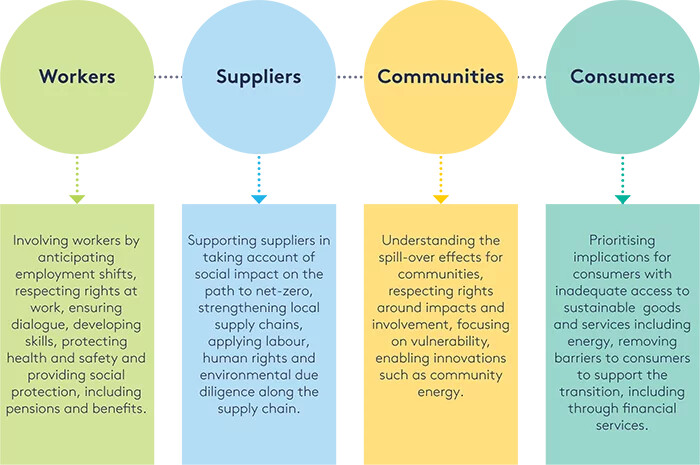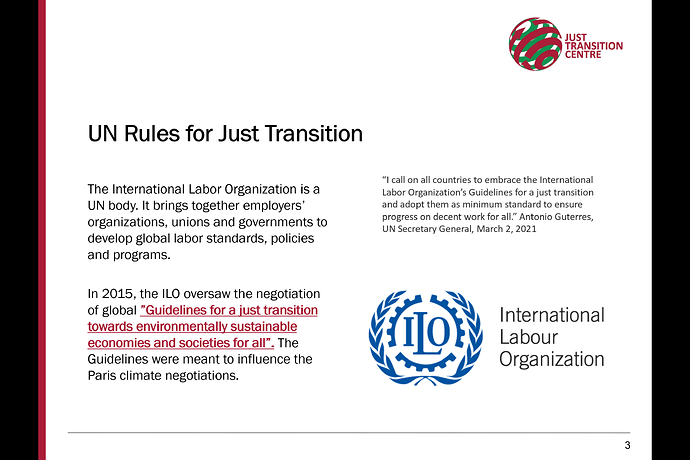Energy Saving Trust is proud to support the just transition through our work as co-Secretariat of Efficiency for Access, a global coalition that has invested over £200 million to support technological innovations for appliances and equipment powered by renewable energy for use in resource-constrained settings. Funded by UK aid and the IKEA Foundation, Efficiency for Access’ foundational initiative, the Low Energy Inclusive Appliances programme (LEIA), has contributed to over 5 million people gaining access to highly efficient fans. Compared with other technologies such as air-conditioners, efficient and solar-powered fans are a low-cost and practical solution to keep people cool and maintain their livelihoods amid rising temperatures.
Novozymes works across some 40 different industries, with customers and a supply and value chain that ranges from agriculture and food production to bioenergy and consumer household care products. The strongest areas where the discussion and debate around Just Transition have been most prevalent has been in the area of Bioenergy, especially with its role within both the clean energy transition as well as the linkages to support economic growth in rural areas.
Well, it’s been negotiated in the UN in a pretty extensive process involving experts from around the world. It’s also the definition the UN and governments use, and it’s what’s in the Paris Agreement. It is a bit more than a starting point 
What I really like about this is that so much of the dialogue (and indeed the stakeholder demands that @simonderrick notes) focus on the supply side. Great to see the demand side being considered
Many examples seem to (quite rightly) focus on the energy side of the just transition - ive noticed for example a lot of the big tech companies are committing to 100% renewable energy and water stewardship around data centres etc. Sometimes ensuring that the same electrical grids are used so that increased renewable energy capacity and economic impacts benefit the communities and states where the company’s operate. All good, but how do we help companies think beyond energy? I did notice that Patagonia have a commitment to remove oil from its clothing by 2025. Are there other examples like this?
It’s probably important to get across that there are many great initiatives on the social aspects of climate action that are not Just Transition. Not everything has to be Just Transition!
Energy Saving Trust is also proud to support the Scottish Government’s Warmer Homes Scotland programme and Welsh Government’s Nest scheme in Wales, programmes that offer support to people living in fuel poverty. The schemes help people to make their homes more energy efficient by installing a range of energy saving improvements, including boilers, central heating systems and insulation, and help households on low incomes to keep warm and reduce the cost of their energy bills. Both schemes have brought households out of fuel poverty and greatly improved the housing stock in each nation.
I don’t know about others, but I’m seeing rapid growth in activity on biodiversity - including concepts such as ‘net nature positive’ and guided by frameworks such as the Taskforce on Nature-related Financial Disclosures which we’re proud to have contributed to. Part of that is recognising that at the foot of many global value chains are small-scale agricultural producers - and acknowledging that in many cases they are responding to the economic incentives presented to them. We did some work with the University of Cambridge Banking Environment Initiative (Project Trado) a few years back looking at whether and how supply chain finance could be restructured to provide more of an economic incentive to those producers to support more sustainable practices.
a Just Transition also means ‘levelling up’ - ensuring equal access to technologies and financing to enable us to decarbonise. Some countries are way ahead of others in terms of energy policy, investment in renewables and funding for innovation etc. In the UK for instance it’s relatively easy to simply switch to a green energy tariff - but this isn’t yet possible everywhere. How far does this disadvantage some organisations that might want to supply goods and services to countries/companies that have increasingly strict requirements and targets when it comes to their scope 3 emissions?
Learning is one of the greatest forces for change in the world. It’s vital that we meet the changing needs of learners and help to address wider societal and environmental challenges in the process. For me, the just transition is about creating the vibrant and enriching learning experiences that have the potential for real-life impact, open to everyone, for a lifetime of learning.
It sounds great to have that consultation with different actors to get a more complete view of the issues. Did you have any challenge bringing all those parts together?
We did some research which showed that SMEs could lose USD1.6tn of export markets due to multinationals’ climate targets. Clearly our hope with that research was to spur action amongst those SMEs…! The Net-Zero Supply Chain Revolution | Standard Chartered
People may think Just Transition is only for the energy sector, but it is not - to do something meaningful about climate change and decent work involves all sectors and all jobs. Here are some examples from Europe: Food and hospitality https://effat.org/tag/just-transition/; maritime https://www.itfglobal.org/en/news/singapore-maritime-foundation-becomes-first-partner-maritime-just-transition-task-force; construction https://www.efbww.eu/policies/just-transition; and energy poverty; Mayors, unions & IEA collaborate to tackle energy poverty crisis - C40 Cities.
We have been exploring what the land management and nature transition means for workers and associated communities. For example, there are some concerning impacts on the commodification of rural land on tenant farmers in the UK.
Question 2: What are the biggest challenges in achieving a just transition, and how far can education and skills play a role in overcoming them?
In the UK, one of the key issues is the cost of the transition. Home retrofit, low carbon heating and electric vehicles can all involve large upfront costs (even if like electric vehicles (EVs), they are cheaper to run.) This means that governments need to facilitate grants and low cost loans to people to help them to get access to net zero technologies.
From an investment point of view there are several barriers to investing in just transition projects or place-specific climate projects (reference Trade & Industrial Policy Strategies) including:
- Most consist of suite of sub-projects that are interrelated and build on each other’s outcomes. So, there is a risk that investors cherry pick the most profitable sub-projects/ assets and the whole just transition initiative/goal isn’t delivered.
- Most suites require funding from different types of finance/ financial institutions (concessional, grant, impact, commercial return) and will require blending, residual risk pooling and de-risking.
- Drivers of the just transition or place-specific climate project often lack technical and commercial track records that historically would attract FIs risk appetites.
- Higher ambition JT projects characteristically require financial institutions to come on board earlier than the historic norm.
We have also worked extensively to ensure that financial institutions build awareness of the JT and how they can embed it within their climate strategies, products and operations.
There needs to be a new ecosystem created in financial sector that views “making deals” as opposed to “buying deals”. This will require new skill sets within the financial sector as well as within local government. Local government will need pipeline development capacity.
I also think a key problem is lack of clarity of career paths. So, if you’re in a job at risk, knowing what alternatives are available to you that have some overlap with your skill set, and knowing how to achieve the skills needed to transition into these roles
this speaks very much to Daniella’s point about need for public/private partnership on just transition!

